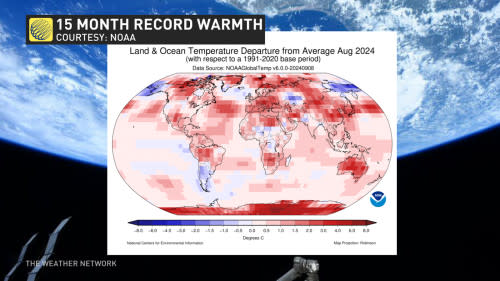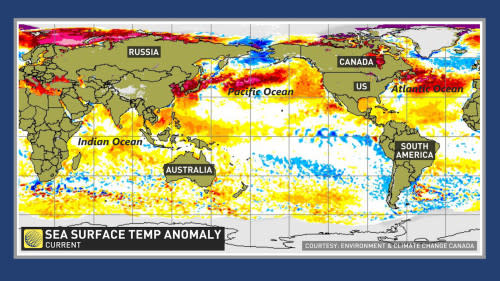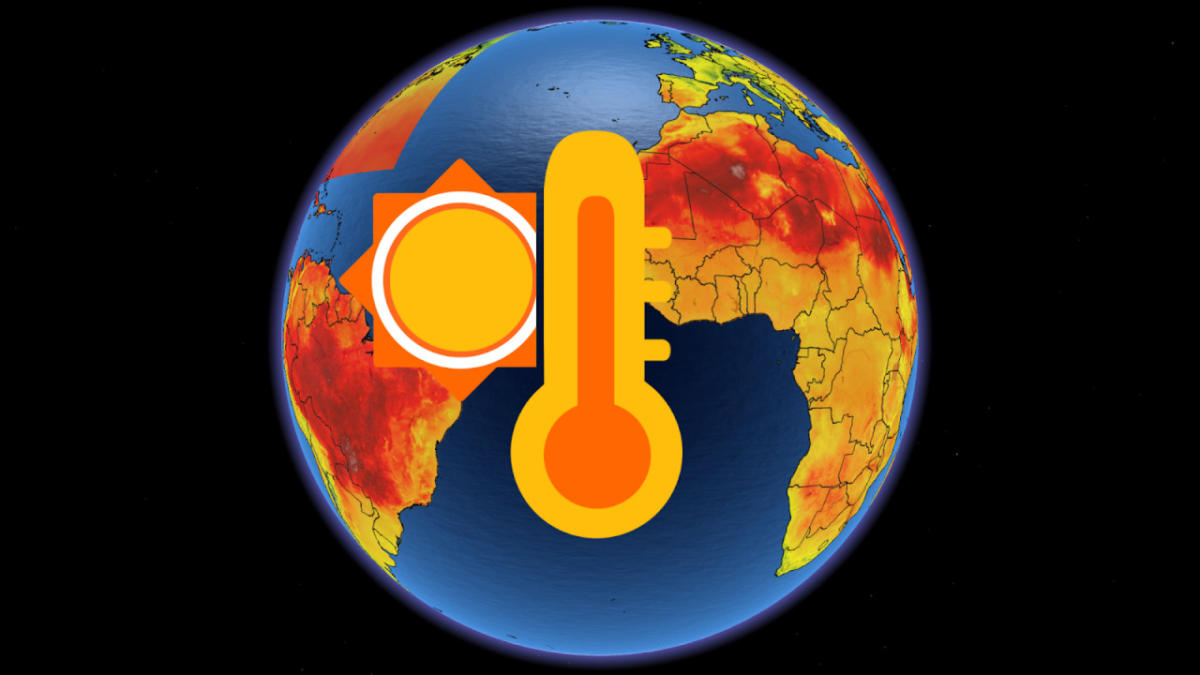The final month of summer forced Canadians to deal with record heat from Newfoundland to the Arctic Circle—but Canada wasn’t alone.
For a historic fifteenth month in a row, the world notched another monthly temperature record when last month landed in the books as the warmest August on record. It’s likely that 2024 will come in as the hottest year on record—replacing 2023 as the current titleholder.

Global temperatures came in 1.27°C above normal for the month, according to NOAA, which is the hottest temperature anomaly we’ve ever recorded during the month of August.
The heat extremes were driven by both land and ocean.
DON’T MISS: World hits streak of record temperatures as UN warns of ‘climate hell’
Warmest on record for some continents
Extreme heat across Europe drove the continent’s warmest August ever observed, with the biggest anomalies falling over the eastern shores of the Mediterranean Sea.
This was the second-warmest August ever measured in both North America, where heat in Canada and the U.S. Southwest drove record heat, as well as in Asia, where temperatures broke records on the Korean Peninsula, in eastern China, and portions of southern Japan.


Meanwhile, wintertime weather has broken its own set of impressive records across the Southern Hemisphere. Australia notched its hottest-ever winter temperature when Yampi Sound in the country’s northwest climbed to an astounding 41.6°C on August 26.
The world’s oceans continue running hot
Much of the month’s exceptional heat occurred over the open oceans.
Above-average sea surface temperatures across the Atlantic Ocean to start the summer fostered high expectations for a very active hurricane season ahead. The season and its ripping-hot waters produced a beast in Hurricane Beryl, but otherwise it’s been unexpectedly quiet.
Why hasn’t the season lived up to expectations so far? August’s temperature anomaly gives us some insight into a major factor.


A band of below-normal temperatures across the southern part of the Sahara Desert was a result of abnormal storm activity and rainfall. This activity usually occurs farther south, where it’s the initial domino in a hurricane’s formation during the peak of the season.
With more than three months to go, the stats point toward a near certainty that 2024 will end as the world’s warmest year ever recorded.

